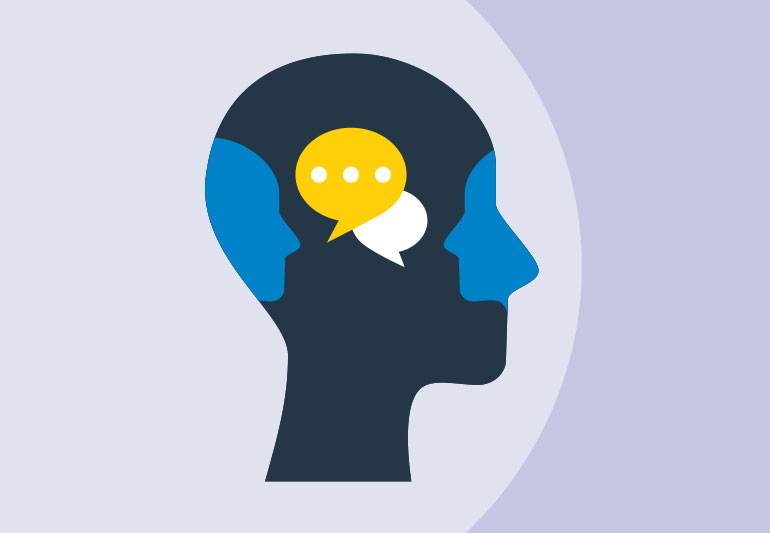The Causes and Types of Schizophrenia: What You Need to Know

Table of Contents
Cognitive Symptoms: Investigating deficits in attention, memory, and executive functioning associated with schizophrenia

Schizophrenia is a complex mental disorder that affects various aspects of an individual’s cognitive functioning. One of the key areas of impairment associated with schizophrenia is deficits in attention. Individuals with schizophrenia often struggle to concentrate and stay focused on tasks, making it challenging for them to complete daily activities and engage in conversations effectively.
Memory impairments are also prevalent in individuals with schizophrenia. Both working memory, which involves retaining and manipulating information in the short term, and long-term memory can be affected. This can result in difficulties in remembering important details, such as appointments, instructions, or even personal experiences. Such memory deficits can significantly impact an individual’s ability to maintain relationships, manage daily responsibilities, and navigate their environment.
Executive functioning, which encompasses a range of cognitive processes such as planning, decision-making, and problem-solving, is also impaired in individuals with schizophrenia. These deficits can make it difficult for individuals to set goals, initiate and maintain organized routines, and adapt to changes in their daily lives. Such challenges can hinder their overall functioning and lead to difficulties in school, work, and social interactions.
Understanding the cognitive symptoms associated with schizophrenia is crucial in developing effective interventions and support strategies for individuals with this mental disorder. By investigating these deficits in attention, memory, and executive functioning, researchers can gain valuable insights into the underlying mechanisms of schizophrenia and develop targeted interventions to improve the cognitive functioning and overall quality of life for affected individuals.
Certainly! Here’s a table-format discussion on cognitive symptoms:
| Cognitive Symptom | Description |
|---|---|
| Attention Difficulties | Individuals may struggle to sustain attention, easily become distracted, or have trouble focusing on tasks. This can lead to decreased productivity and difficulties in completing activities that require prolonged concentration. |
| Memory Impairments | Memory impairments can involve difficulty in forming new memories (encoding), retrieving stored information (recall), or recognizing previously learned information. This may affect daily functioning, such as remembering appointments or recalling recent events. |
| Executive Dysfunction | Executive functioning refers to cognitive processes responsible for planning, organizing, problem-solving, and decision-making. Dysfunction in executive functioning may lead to difficulties in managing time, setting goals, or adapting to changes in the environment. |
| Language and Communication | Cognitive symptoms may manifest as challenges in language processing, comprehension, or expression. This can result in difficulties in verbal communication, understanding instructions, or expressing thoughts coherently. |
| Processing Speed | Some individuals may experience reduced processing speed, leading to delays in understanding and responding to stimuli. Tasks that require quick decision-making or information processing may be particularly challenging. |
| Visuospatial Skills | Visuospatial skills involve the ability to perceive and interpret visual information and spatial relationships. Impairments in visuospatial skills can affect tasks such as navigation, spatial orientation, or interpreting maps and diagrams. |
| Problem-Solving | Cognitive difficulties may impact problem-solving abilities, making it challenging to identify solutions to complex problems or adapt strategies based on changing circumstances. This can affect both personal and professional decision-making. |
Co-occurring Disorders: Examining the high prevalence of mood disorders, anxiety disorders, and substance use disorders in individuals with schizophrenia

Individuals with schizophrenia often experience co-occurring disorders, including mood disorders, anxiety disorders, and substance use disorders. The prevalence of these conditions is alarmingly high among those diagnosed with schizophrenia, posing additional challenges to their mental health and overall well-being.
Mood disorders, such as major depressive disorder and bipolar disorder, are frequently observed in individuals with schizophrenia. Research studies indicate that up to 50% of schizophrenic patients may also suffer from a mood disorder at some point in their lives. This coexistence of mood disorders and schizophrenia can exacerbate symptoms and significantly impair daily functioning. Symptoms of depression, such as persistent sadness, feelings of hopelessness, and loss of interest in activities, can further hinder individuals’ ability to engage in work, social relationships, and self-care.
Anxiety disorders are another common co-occurring condition among individuals with schizophrenia. Studies suggest that approximately 30-50% of individuals with schizophrenia experience comorbid anxiety disorders, such as generalized anxiety disorder, panic disorder, or social anxiety disorder. The co-occurrence of anxiety disorders can intensify the already distressing symptoms of schizophrenia, leading to heightened levels of fear, worry, and paranoia. It can also contribute to increased social isolation and reduced quality of life for schizophrenic individuals.
Substance use disorders, including alcohol and drug abuse, are prevalent in individuals with schizophrenia. Research indicates that over 70% of individuals diagnosed with schizophrenia have a history of substance abuse or dependence. Substance use disorders can worsen the course of schizophrenia by interfering with medication adherence, amplifying psychotic symptoms, and increasing the risk of relapse. Moreover, substance abuse can impair cognitive functions, compromising patients’ ability to effectively manage their symptoms and engage in treatment interventions.
These co-occurring disorders highlight the complexity of schizophrenia and the importance of taking a comprehensive approach to treatment. By addressing both the primary symptoms of schizophrenia and the secondary conditions, individuals can achieve improved mental health outcomes and enhanced overall functioning. It is crucial for healthcare providers to conduct thorough assessments and provide integrated interventions that target the symptoms of schizophrenia and its co-occurring disorders, aiming to enhance the well-being and quality of life for individuals living with these challenges.
The Impact on Daily Functioning: Discussing the challenges individuals with
Individuals with schizophrenia face numerous challenges in their daily functioning, as the disorder can greatly impact various aspects of their lives. One significant challenge is maintaining consistent employment. Studies have shown that approximately 80% of individuals with schizophrenia are unemployed, highlighting the difficulty this population faces in finding and maintaining suitable work opportunities. This can be attributed to cognitive impairments such as attention deficits and executive functioning deficits, which can hinder their ability to meet job demands and maintain productivity levels.
In addition to employment challenges, individuals with schizophrenia often struggle with independent living skills. Tasks that may seem routine to others, such as managing personal finances, cooking meals, or maintaining personal hygiene, can become overwhelming for individuals with this disorder. Daily activities that require planning, organizing, and remembering steps can be particularly difficult due to memory impairments associated with schizophrenia. As a result, many individuals with this disorder require ongoing support and assistance to meet their daily living needs and maintain a sense of independence.
It is essential to recognize and address these challenges faced by individuals with schizophrenia in order to provide them with the necessary support and resources. By understanding the impact of the disorder on their daily functioning, healthcare professionals can work towards developing effective interventions and strategies to enhance their quality of life and promote their overall well-being.
What are some common cognitive symptoms associated with schizophrenia?
Cognitive symptoms commonly associated with schizophrenia include deficits in attention, memory, and executive functioning.
Is schizophrenia often accompanied by other mental health disorders?
Yes, individuals with schizophrenia often experience co-occurring mood disorders, anxiety disorders, and substance use disorders.
How do cognitive symptoms impact the daily functioning of individuals with schizophrenia?
Cognitive symptoms can significantly impair daily functioning by making it difficult to concentrate, remember information, and effectively complete tasks.
Are there any treatments available for the cognitive symptoms associated with schizophrenia?
While there is no cure for schizophrenia, certain medications and therapies can help alleviate cognitive symptoms and improve overall functioning.
What is the prevalence of mood disorders among individuals with schizophrenia?
Mood disorders, such as depression and bipolar disorder, are highly prevalent in individuals with schizophrenia.
Are anxiety disorders common in individuals with schizophrenia?
Yes, anxiety disorders are frequently observed in individuals with schizophrenia, further impacting their daily functioning and quality of life.
How does substance use disorder affect individuals with schizophrenia?
Substance use disorders are prevalent among individuals with schizophrenia and can worsen symptoms, increase hospitalizations, and hinder treatment outcomes.
Are there any support systems available for individuals with schizophrenia?
Yes, various support systems such as therapy, support groups, and community resources are available to help individuals with schizophrenia manage their condition and improve daily functioning.
Can individuals with schizophrenia lead a normal life with proper treatment?
With appropriate treatment, support, and self-care, individuals with schizophrenia can lead fulfilling lives and engage in meaningful daily activities.
What steps should family and friends take to support individuals with schizophrenia in their daily functioning?
Family and friends can provide emotional support, encourage treatment adherence, help with practical tasks, and educate themselves about schizophrenia to better understand and support their loved ones.






